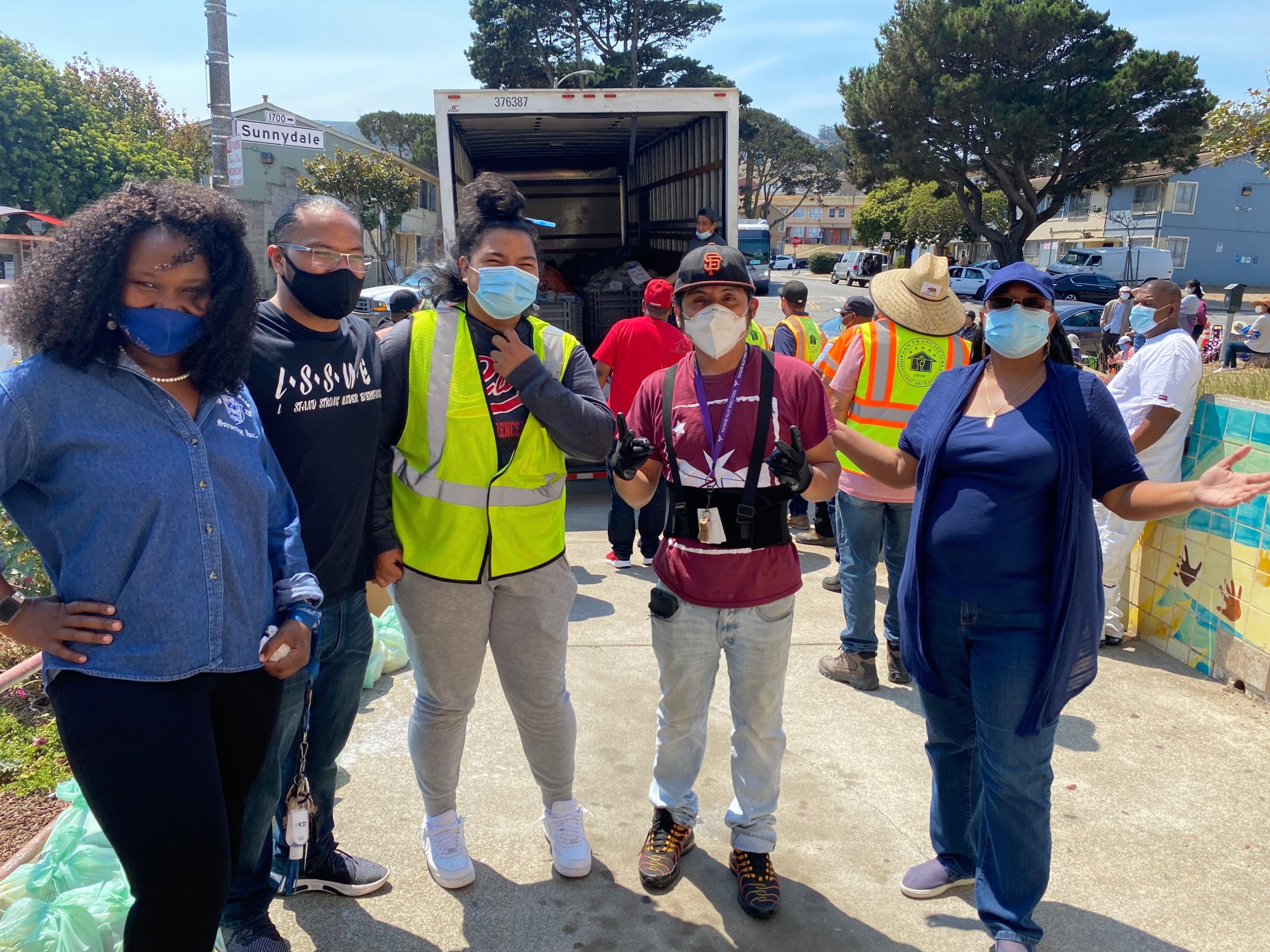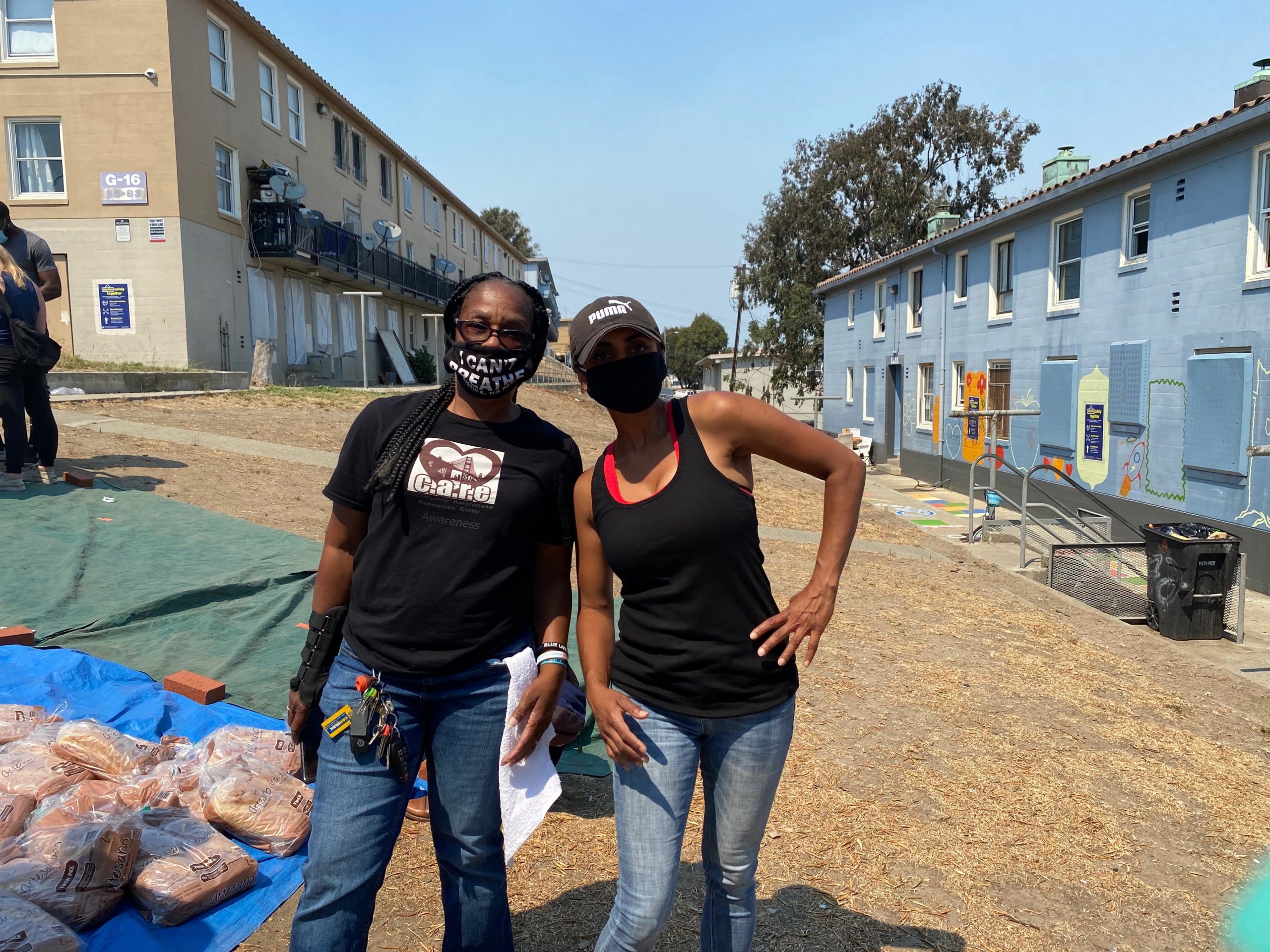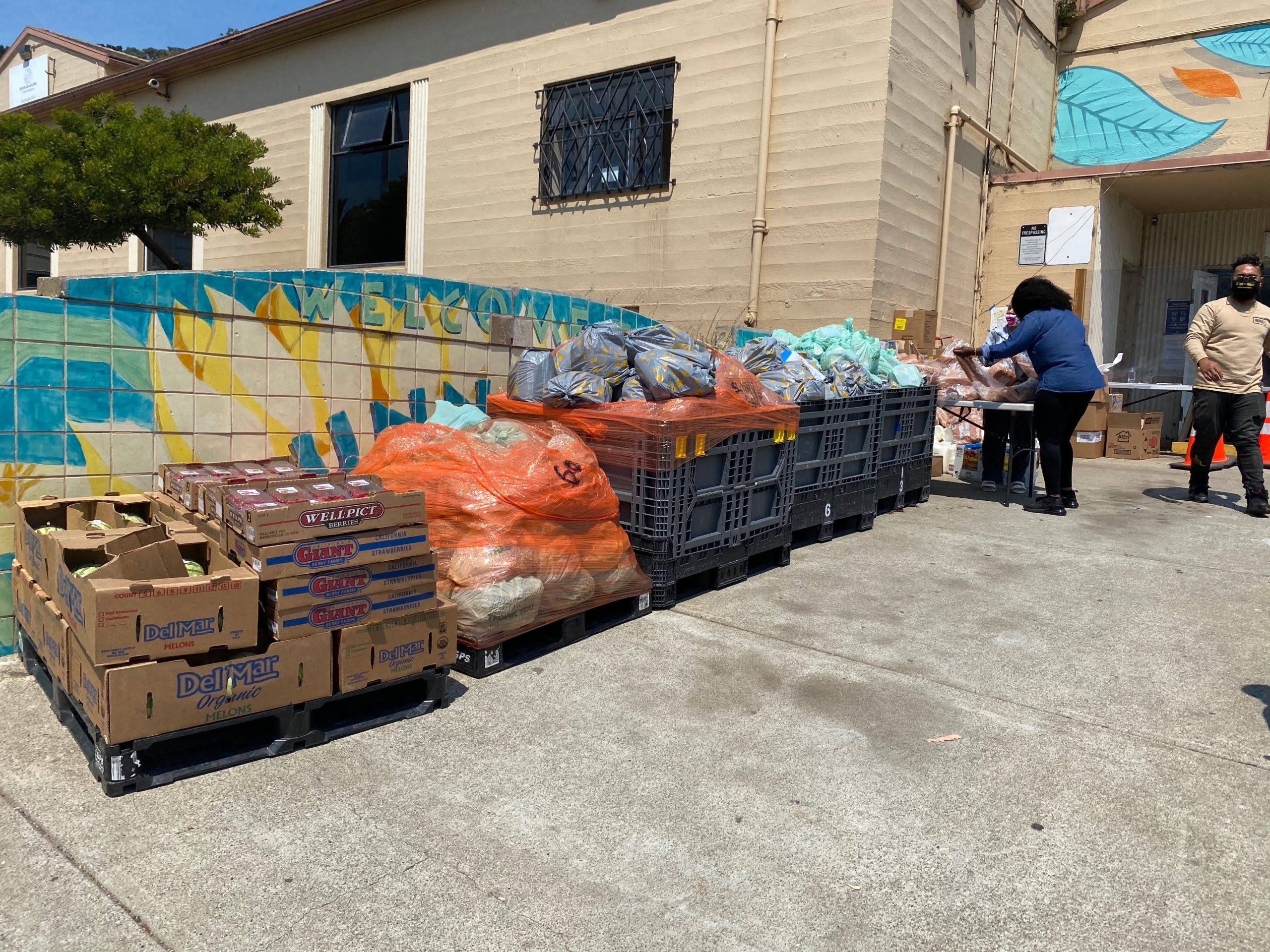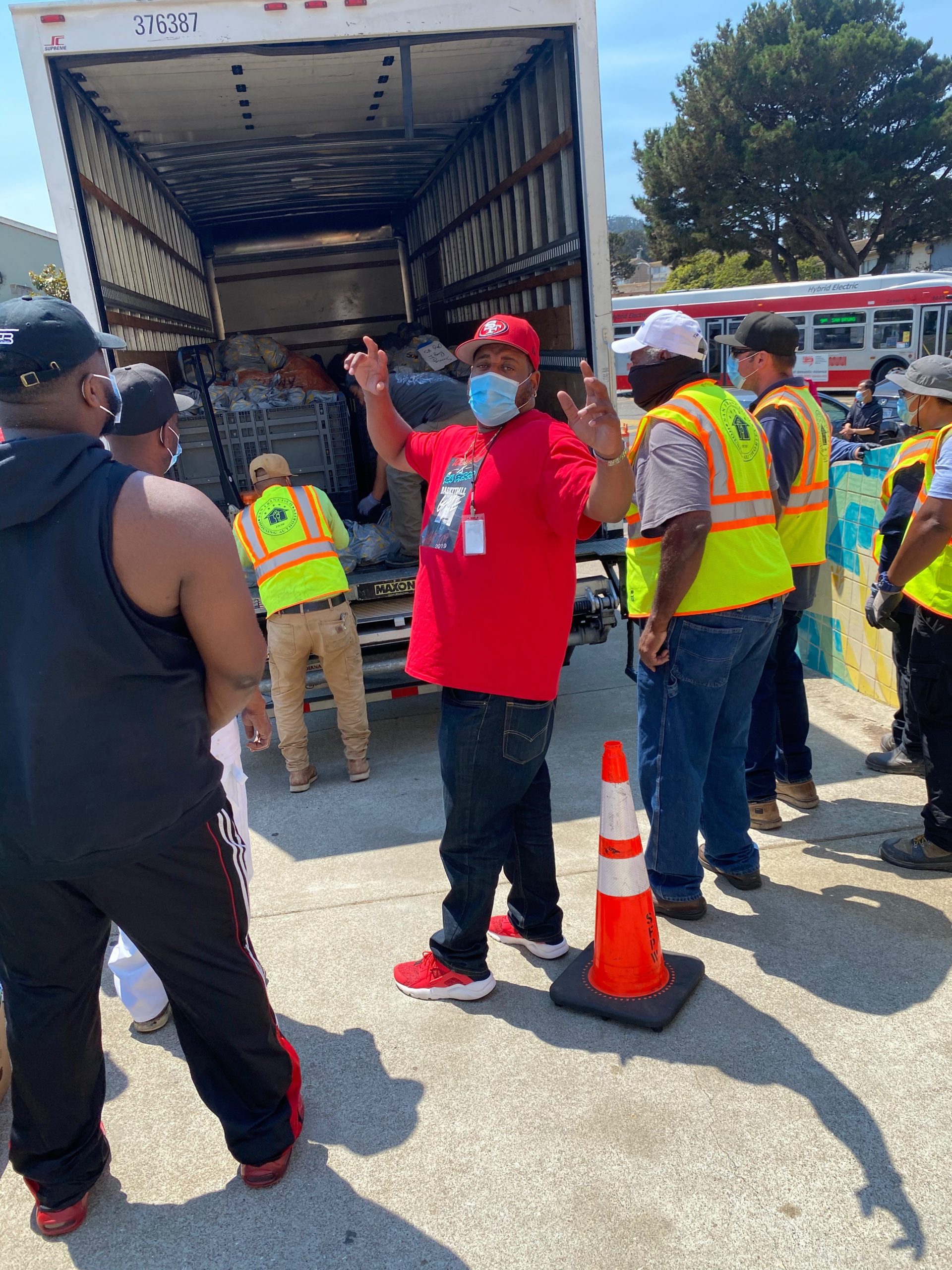HOPE SF Mobilizes to Provide Food & Supplies to Residents During COVID-19 Pandemic
 Photo by San Francisco Housing Authority. Sunnydale volunteers at groceries distribution event.
Photo by San Francisco Housing Authority. Sunnydale volunteers at groceries distribution event.It’s a Friday in August and RoseMarie Sims is keeping track of bags of groceries. Every week at Hunters View, RoseMarie and others assemble 140 bags with fresh produce and other groceries from the San Francisco-Marin Food Bank. The assemblers, including RoseMarie, are staff from the Bayview Hunters Point YMCA, but they are also residents of Hunters View, coming together to help their neighbors.
Today, thankfully, there are extra bags, RoseMarie says. The San Francisco Housing Authority is sending an additional 50 to 70 bags worth of food, for a total of 190 to 210 bgs.
While this weekly food pantry existed at all HOPE SF sites before the COVID-19 pandemic, since the pandemic began it’s become even more crucial.
“We’re seeing more and more people need food,” RoseMarie says.
“We’re seeing more and more people need food,” RoseMarie says.
When San Francisco’s shelter-in-place order went into effect in March, HOPE SF communities mobilized immediately to ensure that residents and families received food and supplies.
“We started with wellness checks,” says Larry Jones, a resident at Sunnydale who works for Mercy Housing. “That was our first move — just to make sure everybody is OK with shelter in place. And then we would ask people, what do they need?”
Over at Potrero, Uzuri Pease-Greene, a resident and the executive director of C.A.R.E, went on a shopping spree for toilet paper, hand sanitizer, and masks. Uzuri convinced stores to sell large amounts to her despite quantity limits — and to give her a discount. “I’m not buying for myself,” she explained to store managers. “I’m buying this to hand out to the community.”
 Photo by San Francisco Housing Authority. Uzuri Pease-Greene and Alyssa Nickell at Potrero Hill groceries distribution event.
Photo by San Francisco Housing Authority. Uzuri Pease-Greene and Alyssa Nickell at Potrero Hill groceries distribution event.At every HOPE SF site, community-based organizations delivered requests for necessities such as toilet paper, diapers, cleaning supplies, and personal care items. Because these organizations had worked closely together over the years along with the cross-sector, multi-organizational Partnership for HOPE SF, they were able to organize quickly to meet the challenge of the pandemic crisis.
Meanwhile, the San Francisco Human Rights Commission, a government partner to HOPE SF, held community meetings with leaders from across the city to figure out ways to support San Francisco’s most vulnerable populations. At these meetings, the HOPE SF team advocated for their residents, arguing that race and income should be central to the initial planning phases because lower income communities of color were hit harder by the economic impact of COVID-19.
One idea that emerged from the meetings supported both local businesses and public housing families. The Human Rights Commission, along with private companies, funded hot meals cooked by local restaurants and distributed through HOPE SF partners such as the Bayview Hunters Point YMCA. Within the first week of the program about half of the 1,300 meals distributed citywide went to HOPE SF communities. At Hunters View, from April through the end of June, the YMCA gave out 259 hot meals a day, five days a week. Approximately 18,800 meals have been delivered across HOPE SF sites. Thanks to the city’s Give2SF fund, hot food delivery continues to date in Sunnydale and Potrero, serving 300 and 200 households daily, respectively.
Community-based organizations at each HOPE SF site also organized food pantries to provide groceries for pick up. For those unable to pick up their bags, such as seniors and disabled residents, they also make deliveries. (At Sunnydale, youth leaders take pride in making these deliveries.) Across the four HOPE SF sites, bags are distributed to 940 households each week, serving approximately 3,760 people.
 Photo by San Francisco Housing Authority. Grocery distribution items at Sunnydale.
Photo by San Francisco Housing Authority. Grocery distribution items at Sunnydale. “Everybody had the same vision to get people fed, to make them feel comfortable and safe, and to help them with the fear of COVID.”
In addition to filling pantries, community groups are also finding ways to lift residents’ spirits through Zoom events, socially-distanced walks, and even socially-distanced outdoor bingo. Being stuck inside most of the day, unable to visit friends and family, has taken a mental health toll on many, RoseMarie says.
Even in the midst of the pandemic, though, there are still moments of joy. RoseMarie describes a day at Hunters View where community members worked together so that residents could get tested for COVID-19 and pick up groceries.
“It just felt like family trying to help people,” she says. “You know, everybody had the same vision to get people fed, to make them feel comfortable and safe, and to help them with the fear of COVID.”
 Photo by HOPE SF Staff. Drew Jenkins and volunteers at Sunnydale groceries distribution event.
Photo by HOPE SF Staff. Drew Jenkins and volunteers at Sunnydale groceries distribution event. 
